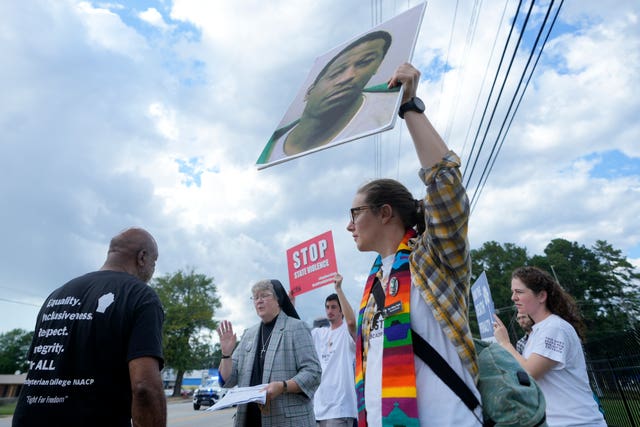
Iain Dale 7pm - 10pm
21 September 2024, 05:34

He was convicted of the 1997 killing of a Greenville convenience store clerk during a robbery.
South Carolina put inmate Freddie Owens to death on Friday as the state restarted executions after an unintended 13-year pause because prison officials could not get the drugs needed for lethal injections.
Owens was convicted of the 1997 killing of a Greenville convenience store clerk during a robbery.
While on trial, Owens killed a person incarcerated at a county jail.
His confession to that attack was read to two different juries and a judge, who all sentenced him to death.
Owens, 46, made no final statement.

His last meal was two cheeseburgers, french fries, well-done ribeye steak, six chicken wings, two strawberry sodas and a slice of apple pie.
When the curtain to the death chamber opened, Owens was strapped to a gurney, his arms stretched to his sides.
After the drug was administered, he said “bye” to his lawyer and she said “bye” to him.
He smiled slightly and his facial expression did not change much before he appeared to lose consciousness after about a minute.
Then his eyes closed and he took several deep breaths.
His breathing got shallower and his face twitched for another four or five minutes before the movements stopped.
A doctor came in and declared him dead a little more than 10 minutes later at 6.55pm.
Owens’ last-ditch appeals were repeatedly denied, including by a federal court on Friday morning.
Since the unintentional execution pause, South Carolina’s death row population has dwindled.
The state had 63 condemned people in early 2011. It now has 31 after Owens’ death on Friday.
About 20 people have been taken off death row and received different prison sentences after successful appeals. Others have died of natural causes.